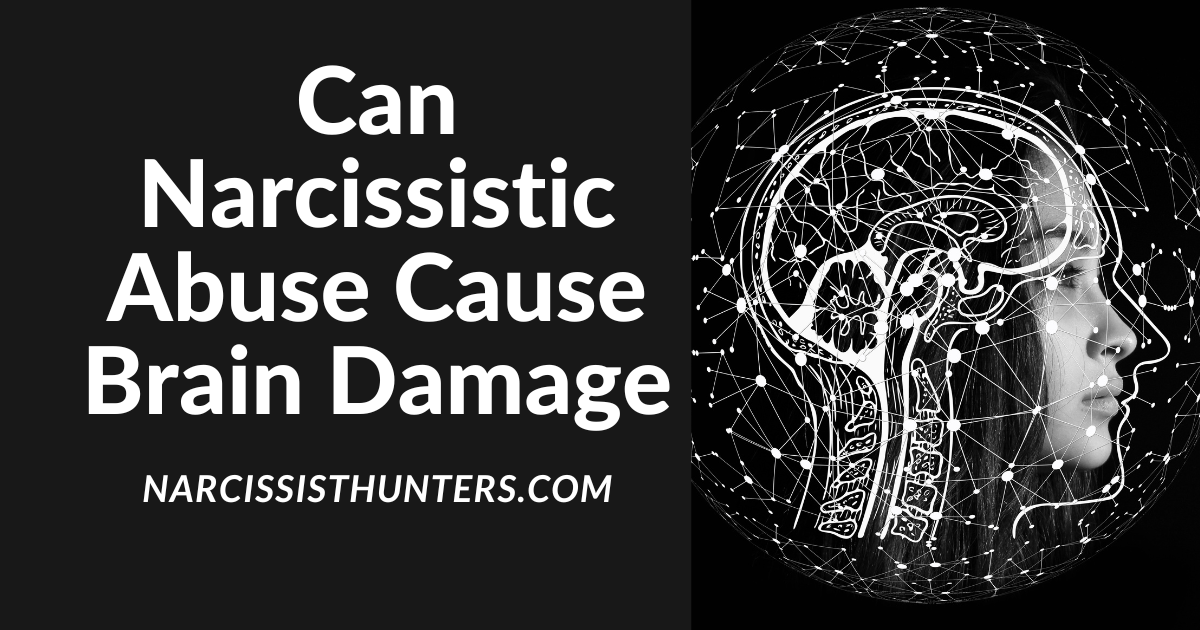Is your abuser causing long-term damage to your brain? Can Narcissistic Abuse cause brain damage? The shocking truth about the link between narcissistic abuse and brain damage is finally being unveiled. Read on to discover the latest research and find out how you can protect yourself from the devastating effects of narcissistic abuse.
Narcissistic abuse can cause severe psychological and emotional damage, but recent research has suggested that it may also cause physical damage to the brain. In this blog post, we will explore the connection between narcissistic abuse and brain damage, including the latest research on the subject.
We will also discuss the long-term effects of narcissistic abuse on mental health and the steps that individuals can take to heal from the trauma.
What is Narcissistic Abuse?
Narcissistic abuse is a form of psychological abuse that is inflicted by individuals with NPD. Narcissistic individuals have an inflated sense of self-importance and a deep need for admiration and attention.
They often exploit others for their own benefit and lack empathy for those around them. Narcissistic abuse can take many forms, including verbal and emotional abuse, manipulation, gaslighting, and physical abuse.
Victims of narcissistic abuse often feel trapped, helpless, and powerless, as their abusers exert control over their lives.
Can Narcissistic Abuse Cause Brain Damage?
Recent research has suggested that narcissistic abuse may cause physical damage to the brain. A study published in the journal Psychological Science found that individuals who had experienced emotional abuse, including narcissistic abuse, had lower gray matter volume in certain areas of the brain compared to those who had not experienced abuse.
Gray matter is the part of the brain that is responsible for processing information and controlling behavior. A decrease in gray matter volume has been associated with a range of cognitive and emotional problems, including depression, anxiety, and PTSD.
The study also found that individuals who had experienced emotional abuse had a reduced ability to regulate their emotions, which may be due to changes in the brain. This can lead to difficulties in managing stress, anxiety, and other emotional states.
Furthermore, the chronic stress of narcissistic abuse can lead to increased levels of cortisol, a hormone that can damage the brain over time. Chronic stress can also cause inflammation in the brain, which can further contribute to brain damage.
The Long-Term Effects of Narcissistic Abuse
The effects of narcissistic abuse can be long-lasting and may persist even after the abuse has ended. Victims of narcissistic abuse may experience a range of mental health problems, including anxiety, depression, PTSD, and borderline personality disorder.
In addition to the mental health consequences, narcissistic abuse can also have a significant impact on relationships and social functioning. Victims may struggle with trust and intimacy issues, have difficulty forming healthy relationships, and may experience social isolation.
Healing from Narcissistic Abuse
Healing from narcissistic abuse can be a long and challenging process, but it is possible. The first step is to recognize that the abuse has occurred and to seek support from a mental health professional or support group.
Therapy can be an effective way to address the trauma of narcissistic abuse and to develop coping strategies for managing the long-term effects. Self-care practices, such as exercise, mindfulness, and healthy eating, can also be helpful in promoting physical and emotional well-being.
It is important to remember that healing from narcissistic abuse is a journey and that progress may not always be linear. It is normal to experience setbacks and to have ups and downs along the way.
With patience, self-compassion, and the support of others, it is possible to recover from the trauma of narcissistic abuse and to move forward to a healthier and happier life.

Your article helped me a lot, is there any more related content? Thanks! https://accounts.binance.com/zh-CN/register?ref=WTOZ531Y